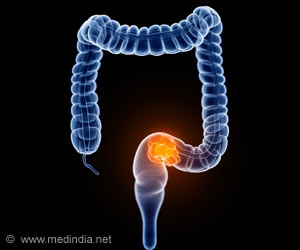Negative childhood events could release cortisol and adrenaline that impact brain health, resulting in binge eating during college days.
- Adverse childhood experiences can lead to binge eating or overeating conditions later during college days
- Long-term exposure to childhood bad experiences causes a constant release of cortisol and adrenaline hormones, impacting the brain and stimulating binge eating in later life //
- Mental health support along with preventive measures can curb childhood trauma-induced binge eating
Studies reveal that those who experienced traumatic events as children were more likely to develop an overeating issue or engage in binge eating (1✔ ✔Trusted Source
Associations of positive childhood experiences with binge-eating disorder characteristics and intuitive eating among college students
Go to source).
Adverse Childhood Events: What are the Possible Causes?
Stressful or traumatic circumstances are characterized as adverse childhood experiences (3✔ ✔Trusted SourceAdverse Childhood Experiences (ACEs)
Go to source), and they include:
- Loss of family member/parental divorce or separation.
- Natural disasters.
- Domestic violence.
- Sexual abuse.
- Accidents or Shootings.
- Bullying.
- Living in a war-torn region
- Witnessing serious injuries or the death of another person.
Adverse childhood experiences and binge-eating disorder in early adolescents
Go to source).
According to a study, kids who have experienced sexual abuse are more likely than their peers to report self-harming, binge-eating, and purging habits.
Physiological Changes of Adverse Childhood Experiences
A child's body is under tremendous stress as a result of traumatic childhood events, releasing stress-related chemicals like cortisol and adrenaline to aid with situational adaptation- called as "fight-or-flight" reaction. These hormones produce a number of short-term changes in the body, including an elevated heart rate, altered breathing patterns, and altered vision.However, prolonged stress causes continuous use of these stress hormones which can be toxic affecting the brain's development and functionality and impacting cognitive behaviors.
Furthermore, there is a link between physical health issues and adversity during childhood. Many people who suffer from migraines, heart disease, cancer, and autoimmune disorders have experienced prolonged stress as children.
In addition to adverse childhood events leading to eating disorders, it can also lead to substance abuse, domestic violence, depression, anxiety, obesity, and early morbidity.
Binge Eating: Need for Interventions
It is evident that not all wounds heal with time and that intervention is required to lessen the effects of traumatic experiences in the past.Overcoming binge eating may involve seeing a mental health therapist for psychotherapy or a medical professional for the treatment of any underlying medical conditions like heart disease.
While there are certain negative childhood experiences that can be prevented, not all forms of childhood trauma are avoidable. Educating one's family and community on the long-term effects of traumatic childhood experiences is the best way to prevent these kinds of incidents.
“Fostering solid relationships in a safe and supportive environment helps children grow up healthier and avoid childhood trauma.”
References:
- Associations of positive childhood experiences with binge-eating disorder characteristics and intuitive eating among college students - (https://www.sciencedirect.com/science/article/abs/pii/S0195666323025357)
- Adverse childhood experiences and binge-eating disorder in early adolescents - (https://jeatdisord.biomedcentral.com/articles/10.1186/s40337-022-00682-y)
- Adverse Childhood Experiences (ACEs) - (https://my.clevelandclinic.org/health/symptoms/24875-adverse-childhood-experiences-ace)
Source-Medindia










